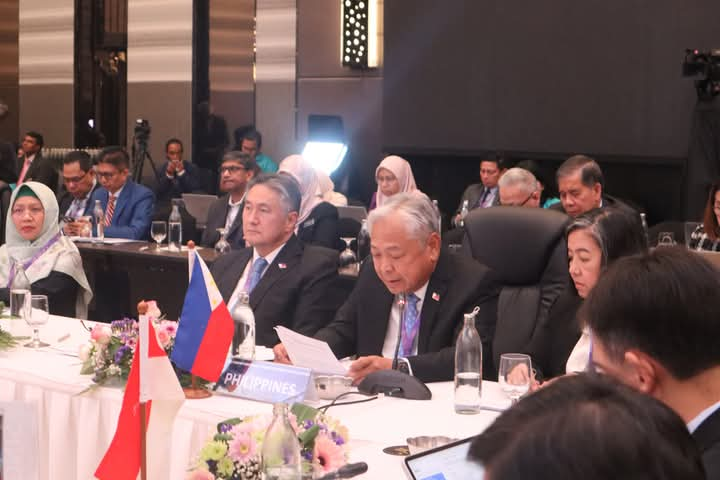Philippines reaffirms ASEAN transport cooperation, pushes for modernized system
By Trixee Rosel

The Philippines has reiterated its commitment to strengthening partnerships with ASEAN neighbors while pushing for a modern and efficient national transport system, Department of Transportation (DOTr) Secretary Jaime J. Bautista said.
Speaking at the 30th ASEAN Transport Ministers (ATM) Meeting and Associated Meetings, Bautista joined regional leaders in supporting key initiatives, including the Annual Priorities and Key Deliverables in Transport for 2025, Protocol 5 on Own Stopover Rights, and ASEAN Guidelines on Light Electric Vehicles (LEV).
The discussions also covered major topics such as the ASEAN Guidelines on Urban Freight Transport (UFT), Public-Private Partnerships (PPP) in the port sector, and advances in port digitalization and automation—all aimed at enhancing the region’s logistics and transportation infrastructure.
A significant development was the signing of Protocol 5, which allows ASEAN airlines to operate flights with stopovers in other ASEAN countries.
This is expected to enhance air connectivity, boost tourism, and strengthen economic integration across the region.
Ministers also explored collaboration opportunities with China, Japan, and South Korea to advance regional transport projects, emphasizing the importance of partnerships in enhancing infrastructure and connectivity.
In addition, a session involving development partners like the Asian Development Bank (ADB) and the World Bank focused on sustainable mobility and international support for ASEAN’s national and regional transport priorities.
On the sidelines, the Philippine delegation held bilateral talks with the International Transport Forum (ITF) and the US-ASEAN Business Council (US-ABC), highlighting discussions on supply chain resilience, transport safety, decentralized identity infrastructure, and sustainable transport solutions.